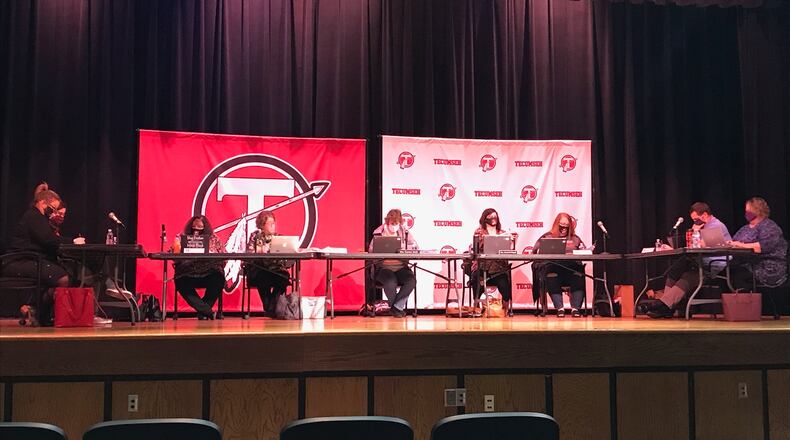The levy assessment, a $11,500 contract, will begin in April and take about five to six weeks to complete, according to Superintendent Paula Crew. Once the company is finished, they will report back their findings so the district can “hopefully make a decision in June on what we need to do.”
The company will survey the community and collect data on the potential levies and levy types that voters might support on the ballot in November.
“We need an outside neutral entity to see what the community is likely or not likely to pass,” Crew said at Tuesday nights board meeting. “This is to help make the best-informed decision.”
Crew said the district has not been able to get voters to approve new operating money in about 26 years. As a result, they have had to cut one program so far - Career Based Intervention (CBI) - as their “expenditures exceed their revenue.”
“It’s not our desire to cut student programming, but we haven’t passed new operating money since 1995, so as a result of our deficit spending compared to our revenue - basically what we’re bringing in and what we’re spending - we’re spending more than we’re bringing in. So, what we have to do is evaluate our programs and staffing and personnel and determine what cuts we can make,” she said.
“We hate making cuts. We hate losing student programs. We have to take a look at the programming and ask, ‘what’s going to cause the least impact?’,” she added.
Crew said it’s “disheartening” that they haven’t been able to pass new operating money.
“When asking folks to pass new money, and they themselves may have ramifications from COVID or the medium salary is not very high... It’s not based upon wealth of the community but the need of the school,” she said.
The CBI program helped assist students who may need credit recovery, but Crew said the district does have other systems in place to continue helping those students.
“Our high school administrative team are working diligently to make sure we have alternatives for them,” she said. “One alternative is CTC (Career Technology Center). CTC does have a CBI program that Clark County schools use at the high school level instead of offering that at the home school in an effort to save costs.”
Although the program was cut, the former CBI teacher shifted from having CBI students to special education students, Crew said. She said the teacher did not lose his job, but was only shifted to teach special education, which he has taught previously for many years.
The program cut and teacher shift helped the district save the cost of an entry year teacher plus benefits and salaries, which can range anywhere from $40,000 to $50,000, Crew said.
“Instead of hiring an intervention specialist if needed, we shifted the teacher into a position instead of hiring someone new,” she said.
Crew said the CBI program is the only one that has been cut at this time, and the district is “currently scrutinizing our spending and finding areas in which we can save cost, that may or may not involve additional student programming.”
About the Author

